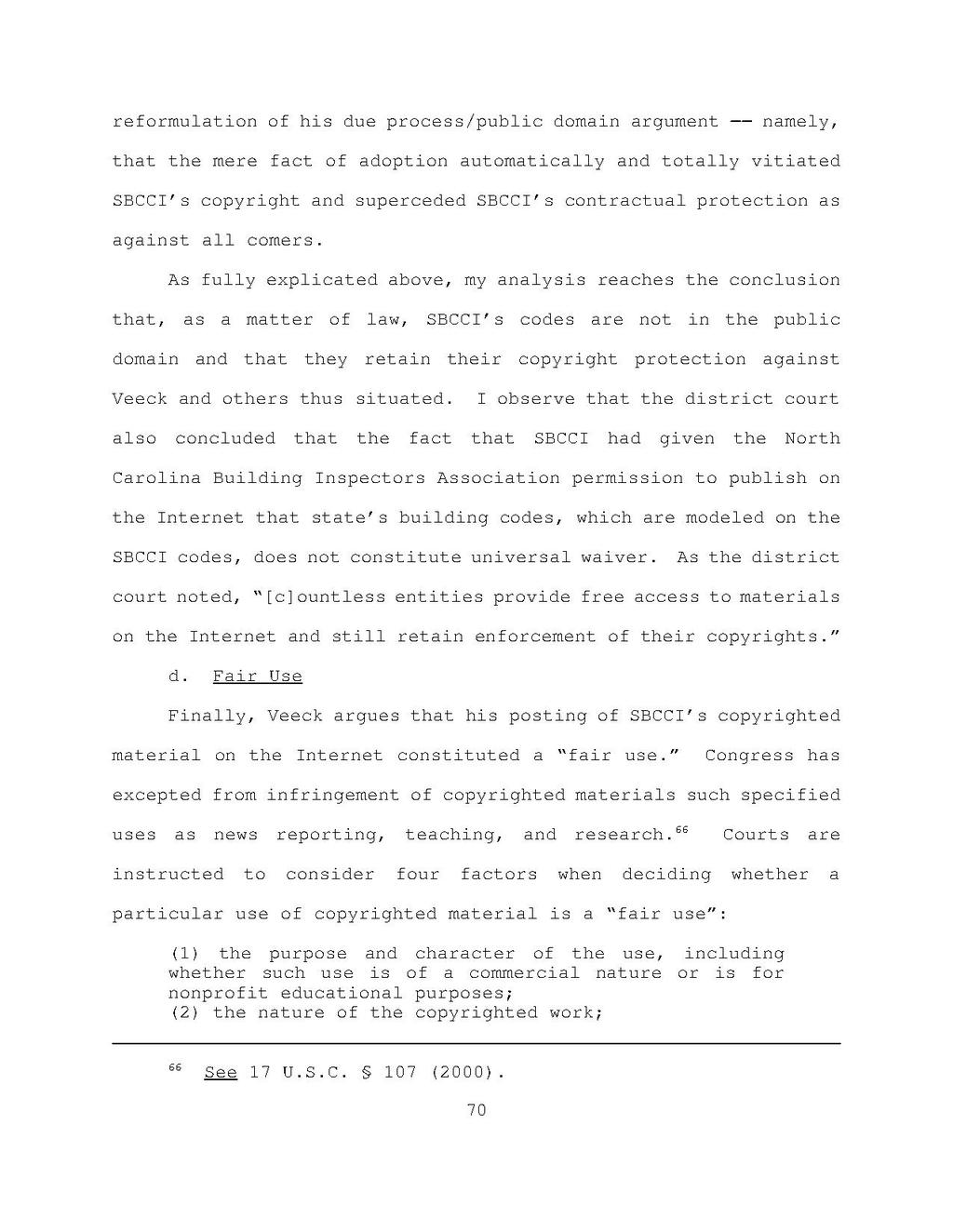reformulation of his due process/public domain argument—namely, that the mere fact of adoption automatically and totally vitiated SBCCI's copyright and superceded SBCCI's contractual protection as against all comers.
As fully explicated above, my analysis reaches the conclusion that, as a matter of law, SBCCI's codes are not in the public domain and that they retain their copyright protection against Veeck and others thus situated. I observe that the district court also concluded that the fact that SBCCI had given the North Carolina Building Inspectors Association permission to publish on the Internet that state's building codes, which are modeled on the SBCCI codes, does not constitute universal waiver. As the district court noted, "[c]ountless entities provide free access to materials on the Internet and still retain enforcement of their copyrights."
d. Fair Use
Finally, Veeck argues that his posting of SBCCI's copyrighted material on the Internet constituted a "fair use." Congress has excepted from infringement of copyrighted materials such specified uses as news reporting, teaching, and research.[1] instructed to consider four factors when deciding Courts are whether a particular use of copyrighted material is a "fair use":
(1) the purpose and character of the use, including whether such use is of a commercial nature or is for nonprofit educational purposes;
(2) the nature of the copyrighted work;
- ↑ See 17 U.S.C. § 107 (2000).
70
